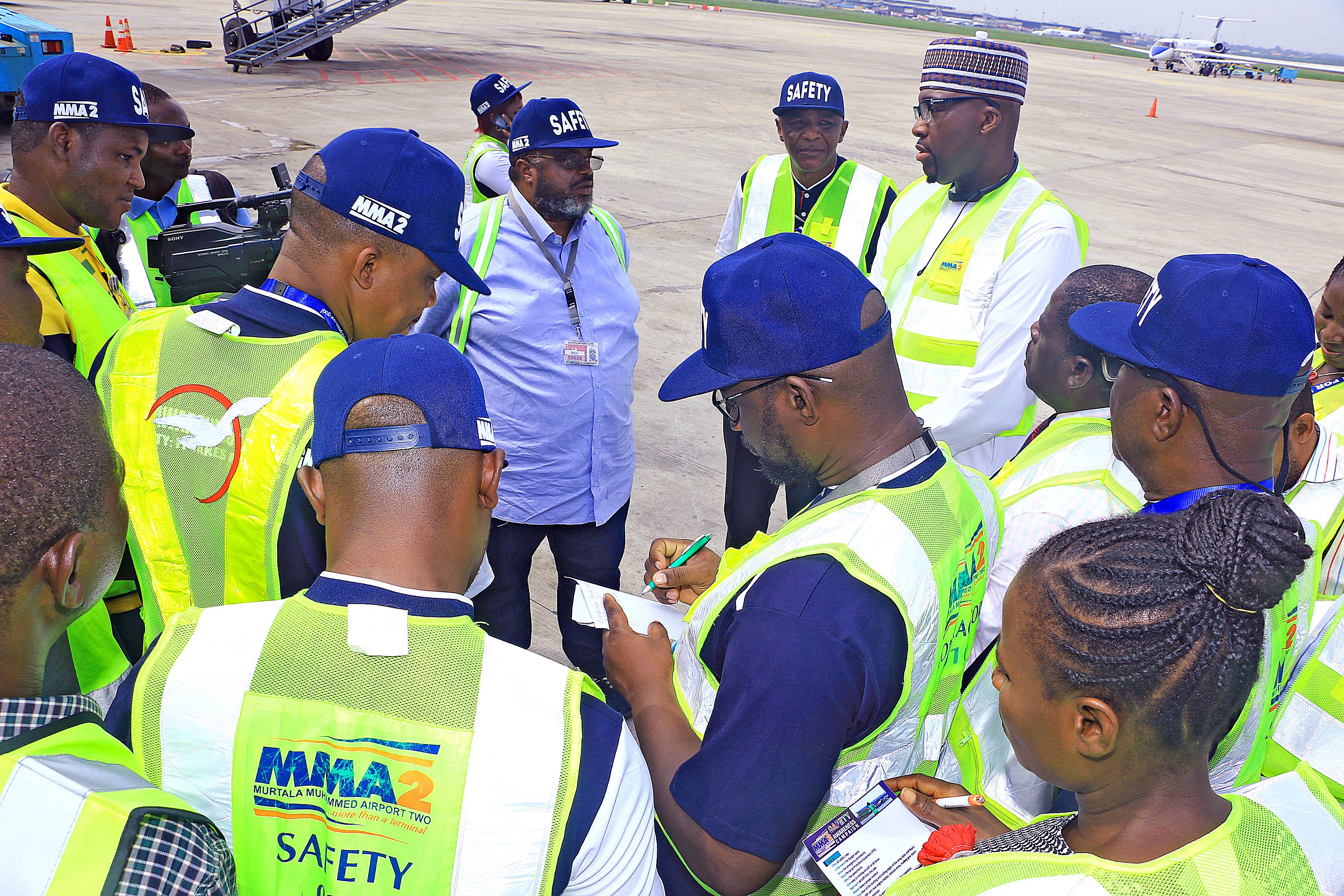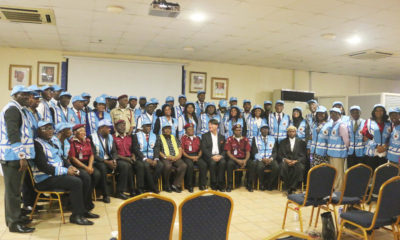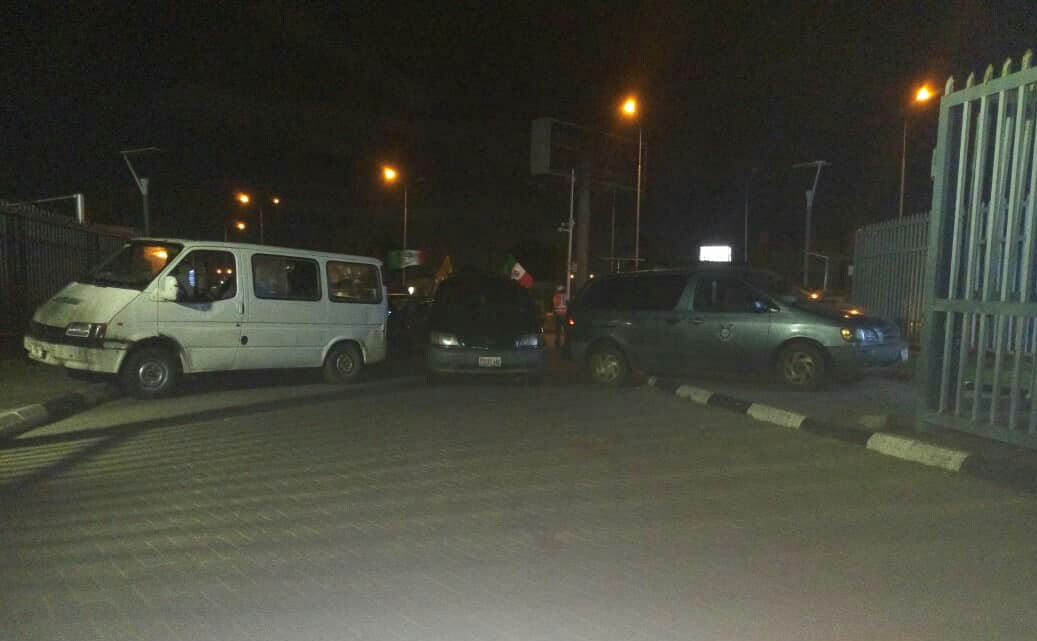News
Robust Safety Culture Is Key At MMA2 – Aroguma

As part of MMA2 2019 Safety Awareness Campaign of constantly improving on safety on the apron and the entire airport terminal, Bi-Courtney Aviation Services Limited (BASL), operators of the Muritala Muhammed Airport Terminal Two (MMA2) conducted officials of the Nigerian Civil Aviation Authority (NCAA) and other agencies on safety audit of the terminal’s airside.
The theme of the awareness campaign was “SAFETY… IT TAKES ALL OF US”.
Aprons, accordingly, are often the most congested and busiest areas of an airport. They are home to demanding and complex activities that are carried out under severe space and time constraints.
According to the Director of Airspace and Aerodrome Standards of the NCAA, Mr. Muhammed Odunowo, safety remains one of the most critical elements in the aviation industry, and as such, cannot be taken with kids glove.
While lauding the initiative behind the exercise, he said it is very important that they come up with programmes that could engender all-round safety measures at all time and one that would encourage passengers to take to air safety.
While speaking, BASL’s Safety Manager, Mr. Charles Aroguma said the priority of the terminal manager was to ensure safety at all times on the apron, stressing that what BASL had done over the years showed its commitment to ensuring safety in all their activities. He maintained that it is an attestation that it takes everybody working together to make safety a reality on the apron.
He said MMA2 would continue to develop and practice robust safety culture across its entire aviation activities that recognize the importance and value of effective aviation safety management.
The safety campaign, he reiterated would help to address challenges which are inherent in their day-to-day activities which includes violation of apron safety rules and regulations, oil spillage during fuelling, working without personal protective equipment, the use of unserviceable equipment, activities of ground handling personnel, promoting quality reporting culture and prompt identification and intervention on potential safety-related issues in and around the apron.
He noted that this would be achieved by clearly defined roles and responsibilities for all stakeholders aimed towards the development and delivery of safe practice and procedures.
-

 News4 days ago
News4 days agoInsecurity: Kogi Schools Resume On Monday
-

 Opinion4 days ago
Opinion4 days agoDon’t Pull the Plug: Why Nigerians Are Pleading for the U.S. to Extend Its Police Training Program — and Why It Must Synergize With New Military Arrivals
-

 Crime4 days ago
Crime4 days agoVigilante Reportedly Shoots Colleague Dead In Plateau
-

 Crime4 days ago
Crime4 days agoMan Shot Dead In Ambush Along Jol-Sho Road In Plateau





